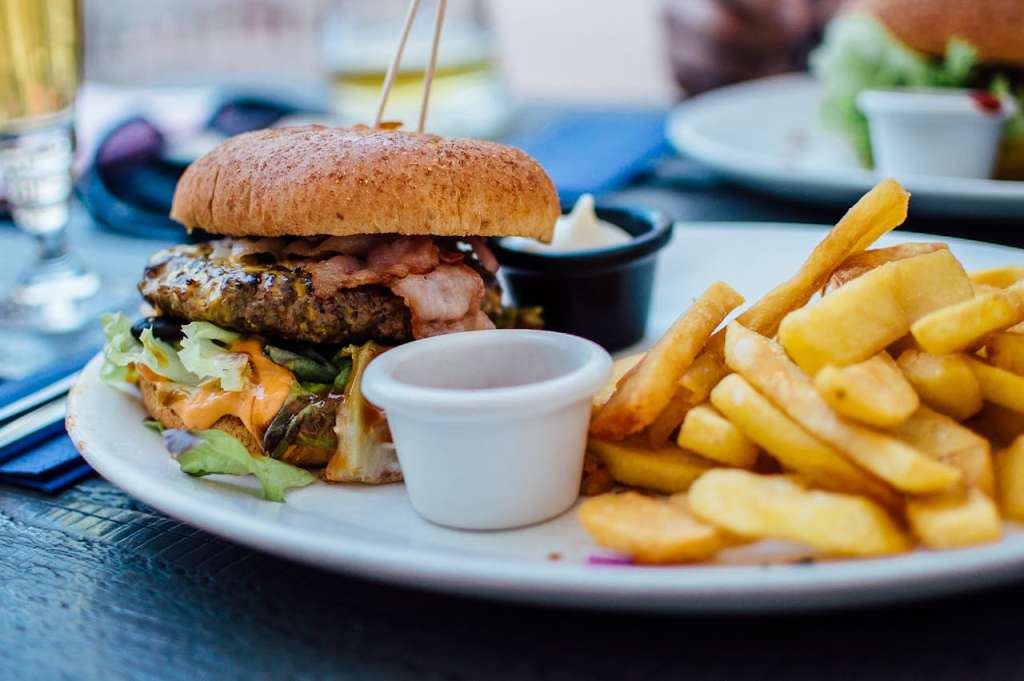Fast food’s appeal is undeniable. The staggering statistic speaks for itself: over 1 billion people worldwide are classified as obese. This global health crisis demands a closer look at the factors contributing to this alarming trend. While a disrupted metabolism plays a role, a major culprit is the ever-present allure of fast food, coupled with a growing disconnect from physical activity.
The Seductive Siren Song of Fast Food:
Fast food is convenient, affordable, and often marketed in a way that’s both fun and enticing. However, the convenience comes at a cost. Loaded with unhealthy fats, refined carbohydrates, added sugars, and excessive sodium, fast food provides a calorie bomb with little to no nutritional value. These processed ingredients trick our bodies into craving more, leading to overconsumption and weight gain.

The Numbers Don’t Lie:
Studies consistently show a correlation between frequent fast food consumption and obesity. A 2013 review in “Obesity Reviews” showed that frequent fast food consumption correlated with higher BMI. A 2017 study in “Public Health Nutrition” revealed that each 1% rise in fast food intake led to a 0.2 kg (0.44 lb) weight gain over four years.
Beyond Calories: The Metabolic Impact:
While calorie intake is certainly a factor in weight gain, the impact of fast food goes beyond simple numbers. Such meals often contain high levels of saturated and trans fats, which can lead to insulin resistance, hindering proper blood sugar utilization. This can lead to a cascade of problems, including increased fat storage and difficulty losing weight. Furthermore, the artificial ingredients and refined sugars found in fast food can disrupt gut microbiota. The trillions of bacteria living in our digestive system that play a crucial role in metabolism and overall health.
The Exercise Equation:
Modern lifestyles often prioritize convenience over physical activity. We spend significant time sitting – at desks, in cars, and glued to screens. This lack of movement burns fewer calories and contributes to a positive energy balance, where more calories are consumed than burned, leading to weight gain. The WHO advises adults to aim for 150 minutes of moderate-intensity or 75 minutes of vigorous-intensity aerobic activity weekly. However, many people struggle to meet these guidelines, further exacerbating the issue of obesity.

Breaking the Cycle:
Addressing the obesity epidemic requires a multi-pronged approach. Here are some key steps:
- Promoting healthy eating habits: Educating individuals about the importance of balanced meals with whole foods like fruits, vegetables, and whole grains can empower them to make informed choices.
- Regulating and taxing unhealthy options: Policies like soda taxes and restrictions on trans fats in restaurants can nudge consumers towards healthier choices.
- Encouraging physical activity: Creating walkable communities, promoting physical education in schools, and offering affordable fitness programs can help people move more.
- Supporting research on metabolism: Understanding the complex mechanisms involved in metabolism is crucial to developing treatments and interventions for those struggling with weight management.
Conclusion:
Fast food’s role in the obesity crisis cannot be ignored. Its convenience and unhealthy ingredients contribute to weight gain and metabolic disruption. While a healthy metabolism is important, it’s imperative not to use it as an excuse to indulge in unhealthy eating habits. By making conscious choices about our diet and prioritizing physical activity, we can break the cycle and reclaim our health. Remember, a healthy weight isn’t just about numbers on a scale – it’s about feeling empowered and energized to live a vibrant life.







